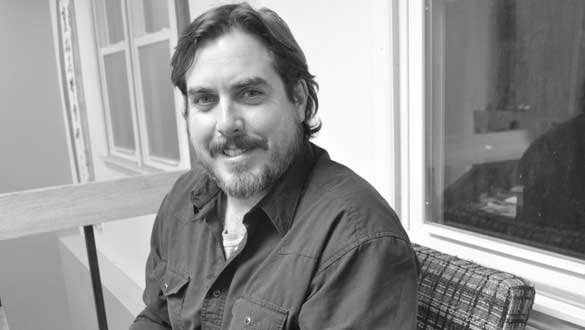
New Paltz Village Mayor Jason West has announced that he will be running for reelection in the mayoral race for his third, non-consecutive term. West held office from 2003 to 2007, then again from 2011 to the present after a four-year gap.
“I think we’ve made a great start on where we need to go as a community,” West said.
According to West, most of the jobs carried out by the Village Board include projects which concern finance and traditional infrastructure such as water sewage, snow plowing and road paving. West saidthat he is trying to find ways of doing the traditional work of government in a more environmentally conscious way.
Ten years ago the solar panels on village hall were installed, running the building on 15 kilowatts of solar energy, costing about $100,000. According to West, to run the entire village on solar energy would require two square miles of panels and additional funding. Maintaining infrastructure is 90 percent of the work done in village hall for the community and West said he would like to continue implementing these types of environmentally-friendly changes.
“At this point I don’t think being an environmentalist is an option, it is a necessity,” West said. “We’ve made a start on this, but it is not funded the way that traditional infrastructure is, so trying to find the money and the projects where we can to green our village from the ground up is a focus of mine.”
As issues concerning housing in the village have become more prominent, West said he has been extremely attentive to the topic. According to West, when he moved to the village 20 years ago, rent for a bedroom ran for about $200 a month and a house could be purchased for around $100,000. Now, on average, buying a house can cost a minimum of $300,000; renting a room, a minimum of $600 a month — well beyond the ability for many people to pay, West said.
“What you see is a growing income inequality in the village where you’ve got people who can afford relatively expensive houses and then there are people who are living five or six people together, just because that is the best way for them to afford to be able to live in the village,” West said. “It’s just getting more and more unaffordable, and that’s happened in the span of just 15 years.”
West said that he wrote a stronger rental inspection law that provides more protection for tenants and makes it easier for building inspectors to enforce the codes so that people are living in safe housing, streamlining the inspection process. Currently all rentals are inspected but this law created more specifications. In addition to this, West created a provision in that law for displaced tenants so that if a tenant moves out of their housing unit because their landlord is negligent, the landlord has to put that tenant up until the problem with the housing is fixed.
“We had more than one instance where people were kicked out of places they had signed a lease with because of issues such as sewers breaking,” West said. “We’ve also created a housing board and passed an affordable housing law this winter.”
This law requires developments of a certain size to set aside 15 percent of the units for affordable housing in hopes of relieving pressure. According to West, affordable is defined as a certain percentage of the average income in the area and that 75 percent of the village residents are tenants and only 25 percent are home owners.
Village laws that would limit the number of non-biologically related individuals legally allowed to occupy a single residency has been the main issue of concern for students of SUNY New Paltz who live off campus. Supporters of this law have been called “anti-student” or “anti-tenant.” According to West, there is a struggle to find a better definition of “family,” which can be defined as a group of people either related by blood or marriage or a group of people in the functional equivalent of a family such as paying bills together, owning furniture together, etc.
“In no sense do we want to prevent student housing. That would be ridiculous. I’m the last person to be anti-student or anti-tenant,” West said. “We’re trying to change a law that doesn’t work for us for obvious reasons: we don’t want to evict half the village, that is just not going to happen.”
West said that if reelected, he would like to explore possible sources of clean energy for the village in order to continue his effort in moving towards a more green infrastructure. West also said he plans to encourage more development in regards to building four-story, mixed use buildings right near each other in the rezoned Route 32 North to look more like Main Street in order to create hundreds of more housing units and dozens of more retail shops.
